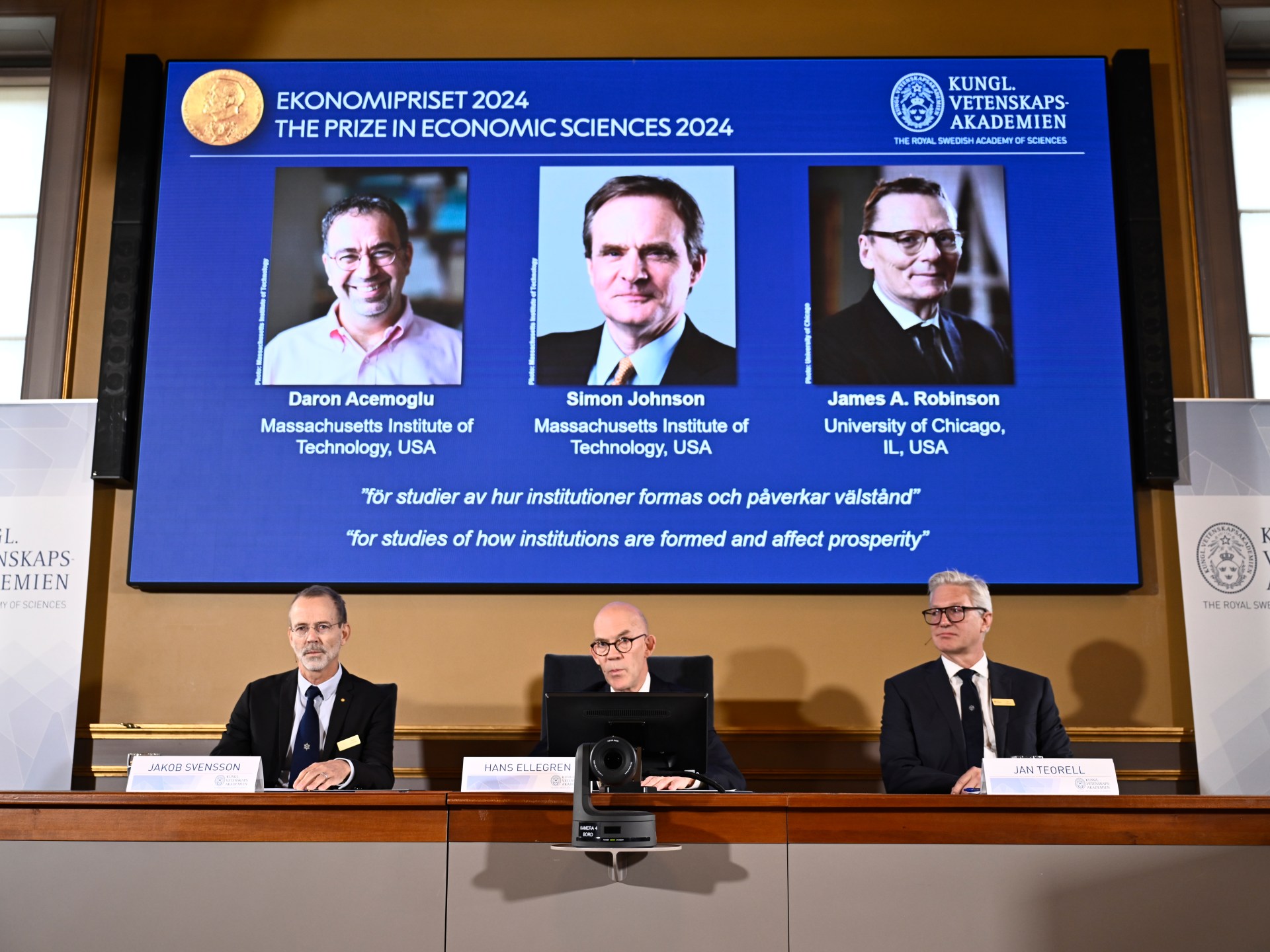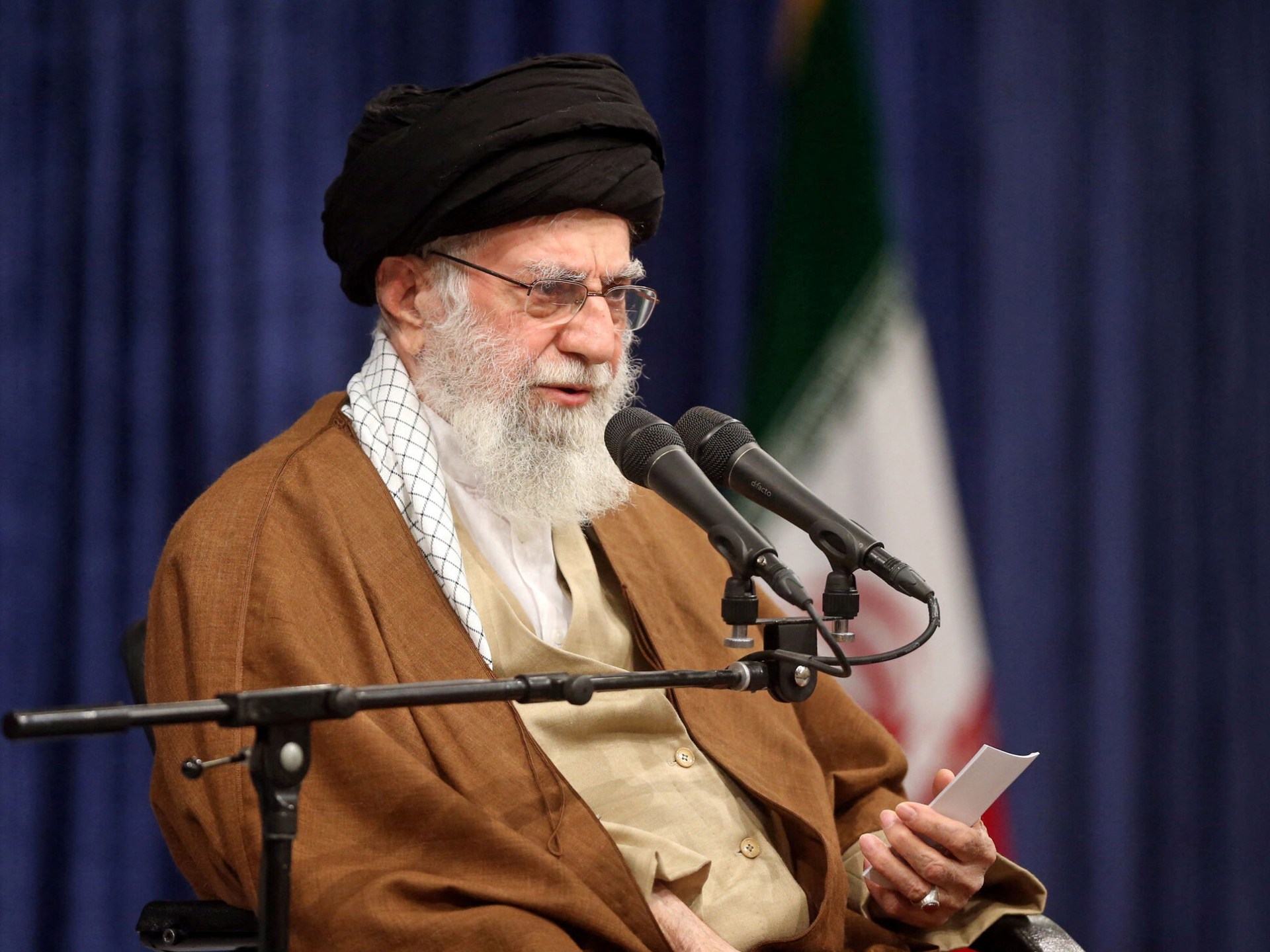The award for work into why countries succeed and fail is the final prize to be given out this year and is worth $1.1m.
Daron Acemoglu, Simon Johnson and James Robinson have won the 2024 Nobel Prize in economics “for studies of how institutions are formed and affect prosperity”, the Royal Swedish Academy of Sciences says.
The award, formally known as the Sveriges Riksbank Prize in Economic Sciences in Memory of Alfred Nobel, was awarded on Monday in Stockholm. It is the final prize to be given out this year and is worth 11 million Swedish kronor ($1.1m).
“Reducing the vast differences in income between countries is one of our time’s greatest challenges,” Jakob Svensson, chairman of the Committee for the Prize in Economic Sciences, said in a statement.
“The laureates have demonstrated the importance of societal institutions for achieving this,” Svensson added.
All three winners work in the United States. Acemoglu and Johnson work at the Massachusetts Institute of Technology while Robinson conducts his research at the University of Chicago.
“I am delighted. It’s just a real shock and amazing news,” Acemoglu told reporters via telephone after the announcement.
Economics analyst Nina Skero said what was “relatively novel” in the trio’s approach was how they looked for examples of “natural experiments in historic examples”.
“Some of their work looks at time periods of colonisation and the types of institutions that countries that were colonisers implemented in those colonies,” Skero, chief executive officer at Centre for Economics and Business Research, told Al Jazeera.
“They’re saying that if you look at historically … places where colonial powers implemented better institutions, … ended up faring better and generating more wealth, particularly in periods of time when industrialisation came around.”
The economics award is not one of the original prizes for science, literature and peace created in the will of dynamite inventor and businessman Alfred Nobel and first awarded in 1901. It is a later addition established and funded by Sweden’s central bank in 1968.
Past winners include a host of influential thinkers such as Milton Friedman, John Nash and former US Federal Reserve Chairman Ben Bernanke.
Last year, Harvard economic historian Claudia Goldin won the prize for her work highlighting the causes of wage and labour market inequality between men and women.
The economics prize has been dominated by US academics since its inception while US-based researchers also tend to account for a large portion of winners in the scientific fields for which 2024 laureates were announced last week.
Nobel honours were announced last week in medicine, physics, chemistry, literature and peace.















Leave a Reply